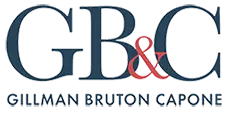Senators have defeated an amendment offered by Senator Dick Durbin (D-IL) to the Helping Families Save Their Homes Act (S. 896) by a vote of 45 to 51 which would have amended Sec. 1322(b)(2) of the United States Bankruptcy Code and allowed, subject to certain conditions, the amendment of a mortgage secured by the debtors personal residence.
Question: Does the defeat the Chapter 13 mortgage modification legislation prevent all modification of mortgages secured by a debtors principal residence.
Chapter 13 Bankruptcy may still allow some homeowners to eliminate second mortgages on their homes if the amount of the first mortgage is equal to or exceeds the value of the home and owners of multi- family homes in which they reside may be able to modify their mortgages.
Chapter 13 permits a debtor to “modify the rights of holders of secured claims, other than a claim secured only by a security interest in real property that is the debtor’s principal residence. 11 U.S.C. Sec. 1322(b)(2) What this means is that even if a mortgage on a debtor principal residence far exceeds the value of the property, a Chapter 13 Plan cannot reduce the amount of the mortgage or the interest rate on the mortgage. The purpose of Sec. 1322(b)(2) is “to encourage the flow of capital into the home lending market” by affording anti-modification protection to home mortgage lenders. Nobelman v. Am. Sav. Bank, 508 U.S. 324, 331, 113 S. Ct. 2106, 124 L. Ed. 2d 228 (1993) (Stevens, J., concurring)
The real estate bubble which caused home prices to rise levels far beyond the means of many if not most home buyers was fueled by ‘creative financing’. In addition to outright fraud, an example of such financing was 80-20 financing which required no down payment. Instead home buyers financed their home purchase by taking out both and first and second mortgage at the time of purchase. Another example were the so-called ” payment – option arms which allowed home buyers to pay less than the interest on their mortgages with the result that the principle balance on these mortgages increased each month.
As a result of the bursting of the bubble many homes are now worth substantially less the the mortgage or mortgages on them. The defeated legislation would have allowed bankruptcy judges – subject to certain conditions – to reduce the both the amount of the mortgage and to the interest rate on the mortgage. Bankruptcy law currently bars modifications on primary residences, while allowing modifications for vacation homes, family farms, and yachts. The amendment would have permitted bankruptcy courts to restructure the debt on home mortgages by reducing the principal owed, extending the repayment period, and reducing interest rates. Under the bill, eligibility would have been limited to homeowners with mortgages originated before 2009, worth less than $625,000, 60 days delinquent, and subject to a notice that a foreclosure may be commenced.
Although the defeat of the legislation does not remove the bar to modification on primary residences by a Chapter 13 Plan, the majority of courts have held that a second mortgage which is completely unsecured my be ‘stripped off’ the primary residence. For example a homeowner who purchased home for $400.000.00 using by financing it with an $320,000.00 first mortgage and a $80,000.00 second mortgage may be able to treat the second mortgage as unsecured and discharge the debt in a Chapter 13 Bankruptcy Case if the value of the home has declined to no more than $320,000.00.
Bankruptcy Courts in Chapter 13 Bankruptcy cases have also held that if a mortgage on the debtors primary residence is secured by additional collateral it may be modified. In one case, a mortgage on a two family home was secured by the debtors residence and the rent from the second apartment and the Court allowed the modification of the mortgage.
It should be noted that these cases relate only to Chapter 13 bankruptcy cases. The ability to ‘strip off’ or ‘cram down’ a wholly unsecured second mortgage is not available in a Chapter 7 bankruptcy case. Debtors in Chapter 11 Bankruptcy cases have similar abilities to modify the rights of secured creditors as is discussed above.
Caution: Whether or Not a Chapter 13 Bankruptcy Petition Can Enable a Homeowner to Modify a First Mortgage or Discharge a Second Mortgage Can Only Be Determined After a Careful Analysis of a Debtor Economic Circumstance and a Professional Valuation of the Debtor Home.
Those experiencing difficulties making their mortgage payments should also carefully review the remedial programs being implemented by the Federal Government http://makinghomeaffordable.gov/modification_eligibility.html


